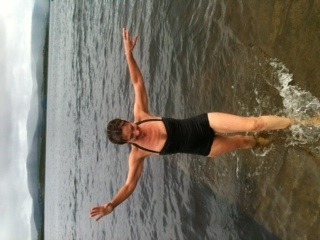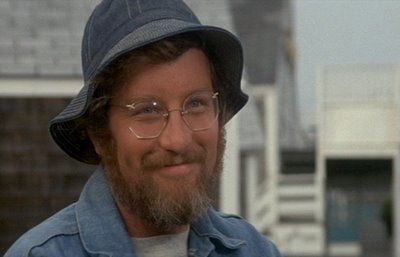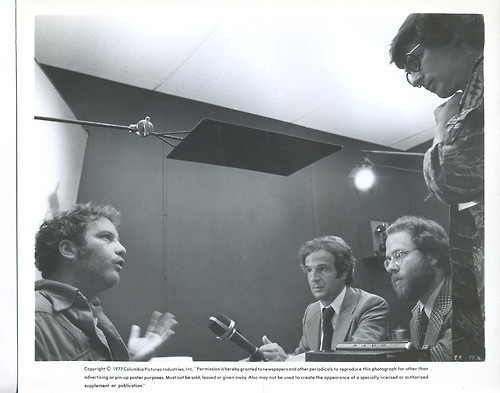Nicci French's Blog, page 3
July 24, 2012
What to do with old sheets
This is the loom that once belonged to the mother of Sean’s Swedish mother and her three sisters. Now it is in our bedroom in Sweden. I knew it would be here when we arrived, but not how bit it would be (I had an idea it would be a slightly larger version of the toy loom I had as a child, nor how beautiful. It looks like a very delicate grand piano. Nor indeed how intricate. What were we supposed to DO with it? But now we’ve had a lesson and are making a rag rug out of all of Sean’s favourite shirts..
[image error]
July 15, 2012
Jump in now
There can be few places more beautiful to swim than Bantry Bay, in South West Ireland. The harbour is narrow and deep, and blue-green mountains surround it, cows and sheep on their lower slopes. A few fishing boats bob near the shore. A gaff-rigged sailing boat tacks out towards the open sea. By a graveyard that runs down the steep field at the end of the town, I jumped in and shrieked. The Atlantic is cold, this wet and chilly July. Sean stood on the shore with a towel and showed no sign of wanting to join me. I've done quite a lot of wild swimming this year, with various members of my family. In February, the estuary at Pin Mill was shallow and silted and sharp stones cut into our feet as we winced our way towards deeper water, which took too long to get to. Our flesh turned blue. Dunwich in March was shocking; it took hours to feel warm again afterwards. But the waves were big and exhilarating and the dog was happy. At Easter-time, the River Severn in Bewdley was just a token gesture - a quick immersion into the swollen, inhospitable waters. Woodbridge in May in the pouring rain was muddy and tidal. The river Cam in June was lovely, though - the day was sunny and the water was cool not icy. Punts got in the way. I often think that swimming is the closest we get to flying - moving in three dimensions, buoyed up by water, not air. This kind of swimming, though, often isn't like flying at all, more like falling. I'm not quite sure what the great pleasure is - you wade over oyster shells that cut your feet or through nettles and brambles that tear your skin; you struggle out of your clothes that you manage to leave in a puddle or on a patch of tar; you get very cold. But it is a pleasure, a kind of freedom. Roger Deakin wrote about so wonderfully it in Waterlog: A Swimmer's Journey Through Britain. See a river, a lake, a sea, and jump in. If it's still raining, all the better.

Nicci Gerrard
nicci@dircon.co.uk
Web: http://www.niccifrench.co.uk
Blog: http://niccifrench.typepad.com/theniccifrenchblog/
July 9, 2012
Ernest Borgnine RIP
I just looked through the credits of , who has just died, aged 95. My God, he appeared a lot of terrible films. But it doesn't matter. What matters are the good ones and Borgnine appeared in From Here to Eternity, Vera Cruz, Johnny Guitar, Marty and Ice Station Zebra. But two performances really stand out. He was one of the stars of Sam Peckinpah's masterpiece, The Wild Bunch, but even better than that, Borgnine featured in what is simply the best fight scene in the history of the cinema. Anyone who hasn't seen Bad Day at Black Rock shoud simply stop reading this now and got get hold of it and watch. It's only 81 minutes long, without a wasted word.
To appreciate the following scene, you need to know that Spencer Tracy has arrived in a small town and been subject to relentless suspicion, hostility and provocation. He has been pushed and pushed and pushed and you are both desperate for Tracy to do something in response and uneasy about what will happen when he does. Here, he finally responds - and this was strong stuff for 1955. If asked to defend the portrayal of violence in the cinema, I might simply point at this scene:
July 4, 2012
A Really Close Encounter
I've just read and enjoyed Spielberg, Truffaut and Me, Bob Balaban's diary of his experiences as one of the leading actors in Close Encounters of the Third Kind. I'm a sucker for accounts of the making of films and, of course, the best ones are the ones where something, somewhere went terribly wrong: Lillian Ross's Picture (about John Huston's The Red Badge of Courage, vandalised by the studio), Steven Bach's Final Cut (about Heaven's Gate, whose financial failure took an entire studio down with it) and Julie Salamon's Final Cut (about The Bonfire of the Vanities).
Balaban has the pleasant problem that Close Encounters was a critical and commercial triumph. But he had unparalleled access, he got to hang out with Francois Truffaut (Balaban plays Truffaut's interpreter) and he's a skilled writer.
A few thoughts (and anyone who doesn't know the film well should probably stop reading now).
Balaban is a very fine actor but he was peculiar casting because as Spielberg noted on their first meeting, he strikingly resembled Richard Dreyfuss, the star of the movie: 'Spielberg thinks I look like Dreyfuss. Since Dreyfuss has shaved his beard for the movie, I must keep mine.' Which is even weirder, because it means that Balaban looks even more like Dreyfuss than Dreyfuss himself.
Compare the above, for example, with the below:

The result, as Balaban, amusingly describes, is that during the shoot Balaban was repeatedly asked for Dreyfuss's autograph,even when he was with Dreyfuss himself! It seems an amazing risk for Spielberg to have taken.
Balaban has two really memorable scenes in the film: the opening scene, where he meets Truffaut and they find the planes in the desert and the scene where, as a cartographer, he recognizes that the signal from the aliens is a map reference. I learned that both were afterthoughts, shot almost a year after shooting had finished. In the original version, Balaban was a simple translator, not a cartographer. Of course, as Spielberg must have seen, it works much better if Balaban's character is slightly insecure in his role as an interpreter.
There's a lesson for any writer: however painful, it's never too late to make your story better.
Funnily enough, my favourite scene in the film doesn't feature any of the spectactular special effects, or even any of the main actors. If I wanted to show someone how terrific a director Spielberg is (or, at least, used to be), I think I'd show them the little scene featuring the air traffic controllers:
I love the scene both because it's beautifully shot and lit (look at the depth of field, the view of the ceiling), but also because it's so restrained. The controllers simply use their technical language, there is no emoting, the suspense is just indicated by the gradual - but still subdued - interest of the other controllers, and the way they suddenly all start talking across each other. It's a routine, self-contained scene, which could easily have been cut, and yet it is both lovingly made and tells you so much about what this film is about and yet it doesn't do your thinking and feeling for you.
Another lesson for writers: scene should ever be just routine. You can always do something special with it - which doesn't mean too special. We aren't told more than we need to know about the air traffic controllers. We don't see a photograph of a sweet little daughter on someone's work top. We don't hear one of them muttering: 'There's something wrong about covering this up!' He knew when to let well alone, as well.
July 3, 2012
Father and Daughter
Last night I watched Taken with - appropriately enough - one of my daughters. Liam Neeson plays an ex-secret service officer whose teenage daughter takes a holiday to Paris and gets kidnapped by white-slave traders. Neeson talks to one of the kidnappers on the phone: 'I don't know who you are, but if you don't let her go, I will find you. I will kill you.' As the film drew to a close, my daughter turned to me and asked: 'Would you do that for me?'
I dunno. Neeson has 96 hours to find her. He flies to Paris on a private jet. Using voice recognition technology and his secret service contacts, he identifies the kidnappers as Albanian gangsters. He jams nails into the legs of one of them and attaches them to an electric socket. He shoots the innocent wife of a corrupt French official in order to get him to talk. He drives the wrong way along a highway alongside the Seine. He kills dozens of of bad guys all over Paris. Four of them while handcuffed to a pipe and being strangled.
Great stuff, but ersonally I've found hanging around outside changing rooms in clothes shops and the occasional lift to the station quite demanding enough. If any of them get kidnapped by white-slave traders, they're on their own.
June 30, 2012
Why Magazines Die
I used to subscribe to six magazines. As of today it's only five. The next issue of Word magazine will be its last. It was a magazine about popular culture that had the attractive feeling of being put together by people for the fun of it. So what went wrong?
1) I've worked on a dying magazine (New Society); if your advertising and your already small circulation are shrinking, then there's really nothing more to be said. But...
2) There was always a snag with the magazine. It was meant to be a magazine for a new group of people who liked quality music and quality film and TV and quality literature. But their heart was only ever really in the music. The books coverage reminded me of the little book section you'd find at the back of a Virgin megastore: mainly books about rock music, plus a Hunter S. Thompson, a Nick Hornby, Howard Marks's Mr Nice and Catch 22.
3) And although they carried music reviews, the music they really, hand-on-heart, cared about was post-Beatles rock up to mid-period REM and Radiohead. When they covered black music, or country and western, let alone jazz or classical, it was like they were doing their homework. As for new music, well, they listened to Lana Del Rey the way I listen to Lana Del Rey. It's nice enough, but it'll never matter to me the way the music I heard when I was fourteen mattered to me.
4) They were caught in a strange bind. They were a magazine for a small group, of slightly sad men like me, who want to talk mainly about the music they heard when they are teenagers or at university. And even for us, there's a limit to how often you can mention how amazingly young Paul McCartney was when Sgt Pepper came out (he was twenty-four; isn't that amazing?).
5) The horrible, terrifying problem for potential publishers of music magazines is this: how can you produce a profitable music magazine for young people who don't buy music magazines and refuse to pay for music?
But there's an optimistic side to this: who would have thought that in 2012, Borders would have disappeared but the Owl Bookshop, which I grew up with in Kentish Town, would still be there? Word magazine may have died, and the CD is following it but the Times Literary Supplement, the London Review of Books and the New York Review of Books are still thriving. I suspect that when man has disappeared from the planet and some new insect beings have evolved to take out place, they'll still be reading books. And complaining about the state of publishing.
June 28, 2012
When Sean Met Nicci
I felt a pang when I heard of 's death this week. I never met her, but When Harry Met Sally was the film that Nicci and I saw on our first date. Well, of course it was. It was said of the Velvet Underground that hardly anyone bought their albums when they first came out, but everyone who did formed a band. And likewise absolutely every couple who went to see When Harry Met Sally ended up getting up married, unless they were married already. What would have happened if we'd gone to Fatal Attraction instead? Or Basic Instinct?
The film has one of the best food-ordering scenes in movie history:
One of the best. But not the best. Not by a long way. The best food-ordering scene in movie history is, of course:
Is it a coincidence that both these scenes were written by women? I think not.
June 24, 2012
I don't bellow, I shriek
X is a feisty blonde. Y is a swaggering braggart. No prizes for guessing who is the woman, who the man. A nag is a woman. A man can't be a nag and he can't be a scold. Why are some words so gendered?
Female words: nag, scold, pert, bubbly, vivacious, feisty, shrill, blonde, blushing, screech, shriek, coy, demure, pout, throaty, svelte, voluptuous
Male words: swagger, cocky, burly, bellow, braggart, banter, leering, lecherous, swashbuckling, ogles, skulduggery
There were lots more and I've managed to forget them - probably because I'm only a coy and blushing blonde….
June 21, 2012
Cryptonomiconomics
I've just finished reading Neal Stephenson's extraordinary novel, Cryptonomicon, and it's done my head in. For a start, it's about half as long again as David Copperfield. I've written novels in a shorter time than it took me to read Stephenson's book. And then, as I read it, I kept asking myself: how does he know all this? It's obvious that he's a serious expert on computer technology and the science and history of codes and code-breaking, especially in the second world war. But he knows everything else as well, about wartime Britain, about the wartime Philippines, about submarines, about the technology of tunnelling, about just lots and lots of things.
More important, he deploys all this knowledge in a multi-stranded, multi-charactered, pan-global story of the kind that hasn't been done much since the Victorians, and the different narratives and characters converge with the most amazing virtuosity. It's got the wild imagination of Gravity's Rainbow, with the added attraction - for me, at least - that I almost always understood what was going on.
I feel I should read the rest of his books, but I checked his latest, and it's over 900 pages. And I'm also reading the George R.R. Martin books. And I'm fifty-three. I haven't got that much time left.
June 4, 2012
The Good War and Modern Memory
Paul Fussell died a couple of weeks ago. I met him many years ago. He was an interesting man and a remarkable critic. He was one of that disappearing generation of academics who could write about the mythology of war and the literature of war with the experience of front-line combat. I just came across an interview he gave to The Atlantic in 1997. In the course of it, he criticises the rosy view we have of the 'Good War':
'We all know that the Second World War destroyed Germany, which had to be rebuilt, but most Americans don't know that it also ruined England -- through wartime expenditure, loss of life, and the damage England suffered in the bombings. It turned England from a powerful, imperial world presence into a third-rate Netherlands. It's just a pitiful little country now, desperately trying to keep up its morale with parades, horse guards and a Queen. But it is povery-stricken and pretty hopeless. The war caused that. The point is that you can't fight a war like that, so close to the enemy as the English were, and survive intact. You win, but you suffer a great deal.'
Oh dear, that's not what we want to hear. Let's change the subject and follow the progress of the Olympic torch processing around Britain instead.
Nicci French's Blog
- Nicci French's profile
- 3598 followers




